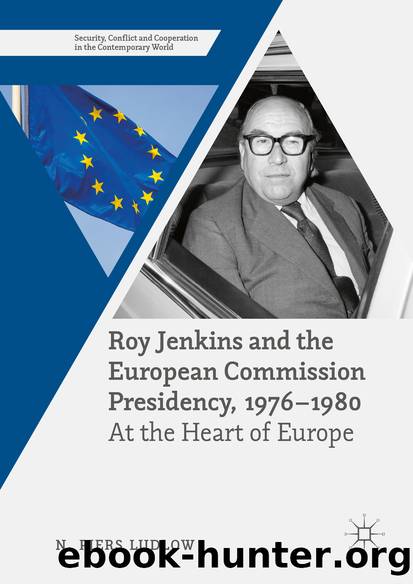Roy Jenkins and the European Commission Presidency, 1976 â1980 by N. Piers Ludlow

Author:N. Piers Ludlow
Language: eng
Format: epub
Publisher: Palgrave Macmillan UK, London
Jenkins and the EMS
The Commission president continued to be actively involved in the monetary discussions throughout the remainder of 1978, as did Ortoli. Both were present at the three European Council meetings dominated by discussions of what would become the European Monetary System, at Copenhagen in March, in Bremen in June, and in Brussels in December. Prior to each Jenkins engaged in his energetic round of bilateral diplomacy, meeting virtually all of the European leaders in the course of the year, and trying especially hard to talk to the German Chancellor before each European summit. On the eve of the Copenhagen summit, Jenkins also addressed a letter to each of his fellow European Council members setting out his view of the priorities ahead, including, it almost goes without saying, monetary union.58 And both Ortoli and Jenkins attended the Bonn G7 summit in July when the Americans, Japanese, and Canadians had an opportunity to register their views of Europeâs revived monetary ambitions.59 Voluminous paperwork about monetary union is hence a prominent component of both the files of the Commission president and those of his vice-president right up until the end of the year.60
The quality of their involvement changed decisively after March, however. Jenkins in particular continued to express strong views on the subject to all of those he talked to, including Schmidt and Giscard. Both the French and German leaders, moreover, made a habit of using him to interpret the very ambivalent signals emerging from London about Britainâs desire to participate in any European monetary scheme and as a tactical sounding board about the best tactics to adopt towards London.61 Callaghan also sought to use the Commission president both as an interpreter of what Giscard and Schmidt were up to, and as vent for his frustrations with what he viewed as an inadequate level of consultation by the French and Germans.62 Immediately after Schmidt and Giscard had outlined their intentions to act decisively in the monetary field at the Copenhagen summit, the Commission president was invited back to Callaghanâs residence so as to confirm that the Prime Minister had correctly understood what his German and French counterparts were suggesting and to discuss the implications with Callaghan and his advisors.63 At the following summit, moreover, Jenkins appears to have played a valuable role in preventing the British leaderâs frustrations from boiling over, intervening in the discussion with a peculiar piece of English doggerel that bemused most of the others present, but sufficiently amused Callaghan, to lessen the immediate tension.64 There also was a limited amount of contact between Jenkins and still more Tickell, and Horst Schulmann, Schmidtâs key advisor during the EMS negotiations and the German member of the secret trilateral and then bilateral discussions held between April and June 1978.65 But fundamentally the initiative had shifted elsewhere, and neither Jenkins nor Ortoli was able to play anything more than a limited supporting role. The Commissionâs total exclusion from the SchulmannâClappierâCouzens discussions was particularly significant in this regard.66 Also revealing was Jenkinsâ
Download
This site does not store any files on its server. We only index and link to content provided by other sites. Please contact the content providers to delete copyright contents if any and email us, we'll remove relevant links or contents immediately.
Einstein: His Life and Universe by Walter Isaacson(2001)
Finding Freedom: Harry and Meghan and the Making of a Modern Royal Family by Omid Scobie & Carolyn Durand(1378)
Promised Land (9781524763183) by Obama Barack(1339)
Finding Freedom by Omid Scobie(1288)
Compromised by Peter Strzok(1256)
JFK by Fredrik Logevall(1148)
Freedom by Sebastian Junger(852)
The Russia House by John Le Carré(816)
Salford Lads: The Rise and Fall of Paul Massey by Bernard O'Mahoney(759)
The Irish Buddhist by Alicia Turner(750)
Day of the Dead by Mark Roberts(749)
Kremlin Winter by Robert Service(712)
Graveyard (Ed & Lorraine Warren Book 1) by Ed Warren & Lorraine Warren & Robert David Chase(702)
A World Ablaze by Craig Harline(695)
Joe Biden: American Dreamer by Evan Osnos(671)
Flying Tiger by Samson Jack(661)
100 Things Successful Leaders Do by Nigel Cumberland(644)
Melania and Me: The Rise and Fall of My Friendship With the First Lady by Stephanie Winston Wolkoff(635)
The Mission by David W. Brown(626)
